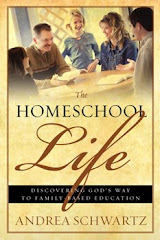There is a time in everyone's life when the realization comes into full view that one's parents are not without flaw. It is unnerving to learn that those people who you were sure knew everything and could make all boo-boos better had shortcomings and areas of sin in their own lives. The next shock came when after years of dismissing their concerns and admonitions, and you became a parent yourself, that you realized that your mom and dad were wiser than you imagined when it came to the important issues of life. Then, you got a little break from reality as you basked in the glow of having a little one who was sure you knew everything about everything and could make all things better, only to be rudely awakened when those same fans turned into critics, pointing out your failings and limitations.
The reality of living out these various stages in family life can be exhausting and anxiety-filled as children grow into young adults -- testing the boundaries of acceptable behavior, while reminding parents of their observable deficiencies and inadequacies. Having experienced all this firsthand (both as child and parent), and witnessing this phenomena in the lives of other homeschooling families, I've come to the conclusion that we don't have enough aunts and uncles in the Body of Christ. I see a tremendous need for the greater body to establish the sort of relationships that develop in extended families. I'm suggesting that rather than being uninvolved spectators when we see Satan and worldly allurements wreaking havoc in the homes of Christian families we know, that we become active participants, walking alongside both parents and children, offering them support and encouragement. Providing an "outside" voice, which reaffirms the Word of God, is a practical outworking of St. Paul's instruction in the book of Galatians, "to bear one another's burdens," and "to do good unto all men especially unto those of the household of faith." (Galatians 6:1-2, 10)
For example, let's say you become aware that a family in your Christian circle is dealing with dress issues regarding their daughters. Rather than merely sitting back and remembering the bad old days when you had those make-up, fashion, or dating struggles yourself, instead, you make it a point to caringly insert yourself into the life of that family, relating to the girls by demonstrating real interest in their lives. Just as a biological aunt wouldn't be put off by a less than smooth initial contact, neither should the spiritual aunt if this relationship takes time to develop. Once it has been established, you can courageously speak into the lives of these young women, imparting the wisdom that you've acquired from your own Christian walk and lifetime of experience. Sharing stories from your own past, while refraining from lecturing, along with ongoing informal discussions, lends support to whatever their folks are trying to address with them (James 5:19-20). It also lets them know that whatever struggles they are experiencing aren't unique to them.
My point is that often young people will "hear it" from an outsider -- someone not actively engaged in the struggle -- rather than from their parents, and will hopefully take to heart what you've shared. By upholding the standards they're being taught at home, you'll find sincere gratitude from their folks for your "bearing this burden" with them. What's more, a little love and encouragement from others can do a world of good and help prevent situations from developing into crises.
I intentionally used the word courageous earlier, because there is that distinct possibility that your efforts won't be welcomed or received in the spirit in which you offered them. But, like all other commands in Scripture, it is more important to obey God than worry about being personally rejected. Invest in a young person today; the Body of Christ will be stronger for it.
Monday, December 18, 2006
Subscribe to:
Post Comments (Atom)









No comments:
Post a Comment